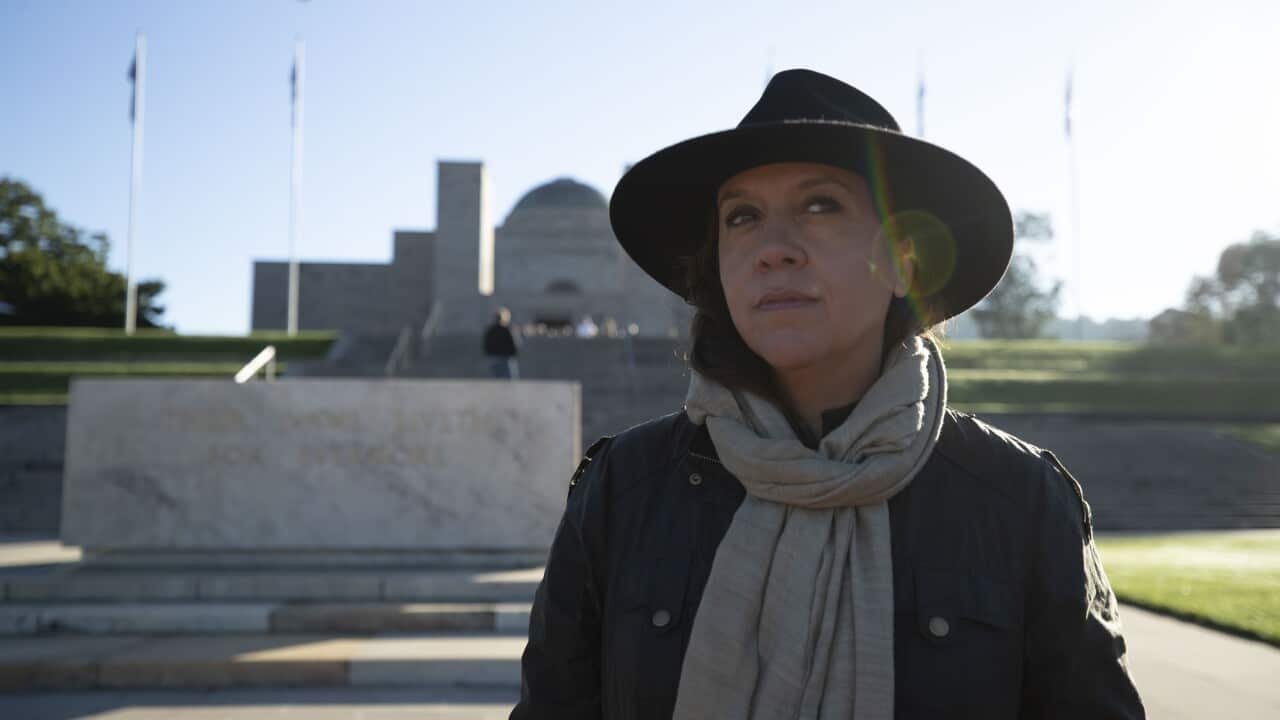Our people were skilled fighters. They were protected by the bush, they had protection in their knowledge.
We know how our people used tactics of running up into short narrow gullies and using the landscape to circle back to fight against the whites from taking our lands.
Our people used fire, they used the land.
They fought back and resisted. But the strategies used by our people, and the stories we know aren’t told in history books.
The truth is, the first world war was with our people.
They fought against us, took our land, our women and children, and resources that fed our people.
We lost the war when they came with gunpowder.
Our people did retaliate in many places, our people stood and held gullies for quite some time but they were overcome by the sheer numbers of guns that were in the possession of the British.
If it had been open warfare, we would have won.
History books would tell a different story, and show how our people fought back and resisted strongly.
The lie of ‘settlement’
The idea that Tasmania was a settlement is a lie. Who claimed it was a settlement?
You have a settlement by the point of a pen, not the point of a gun.
When I think about our history, it rouses me up, I wake up in the middle of the night thinking about the bloodshed.
How they could do that to our people?
The stories we share now, as Aboriginal people, about what happened – they’re the same.
This happened all over Australia. People were shot everywhere, all for the same thing – our land.
You hear stories of colonists shooting men, women and children. What sort of people could do that?
What sort of people could shoot a woman and their child, then go home and father their own children – still with the blood of Aboriginal people on their hands?
All over a piece of land.

Cape Grim in Tasmania has a dark, hidden history. Credit: http://www.tasmania.australiaforeveryone.com.au
There are massacre sites littered throughout Tasmania and across Australia where they shot our people.
You know the places where our people died, you pick up on it. They make the hair stand up on the back of your neck and you don’t want to be there. You know they are massacre sites, you know something happened there.
They even named places after the violence that happened there. Places like Cape Grimm, where they ran our people off cliffs, how do you name it after a massacre yet not acknowledge there was one?
The right to be Aboriginal
Growing up my mother would tell us stories of great-great grandmother Fanny Cochrane Smith. She was the daughter of Tanganooturra, from Cape Portland in Tasmania.
We grew up with her stories, we knew how famous grandmother Smith was, what she did to get our land back, how she stood up for what was right. She was a proud, and strong Aboriginal woman.
I’ve tried to live my life in her honour.

Rodney Dillon's great-great gramdmother Fanny Cochrane Smith. Source: NITV / NITV
I believe in the right to be an Aboriginal person, the right to stand your ground, and the right to take the government to court to fight for what you know is important.
Those stories mum told us made us really proud and strong Blackfullas, but when we got on the bus we were treated like dogs.
The hatred still exists today, in pockets.
A one-sided history
We need change. We need truth-telling, and that starts with looking at the top.
We need to talk about the new king, we should be pushing for an apology and compensation for what happened to our people.
His whole family allowed this to happen across the country and profited from it. They should hang their heads in shame.
If we don’t talk about this now, we won’t.
It’s time to talk and it’s time to truth tell for our young ones, in schools and universities. We have to start with teachers, who should go back and do truth-telling courses.
Teachers need to do a truth-telling course because there are so many still saying Australia was a settlement – they’re teaching lies.
When we tell the truth, we have to be able to say what really happened. We have to call it what it was - genocide.
For now, we can’t do that, it’s like whites can’t get it out. The frontier wars were the attempted genocide of our people, across the entire country.
Even now there's no recognition of that here in Tasmania. The silencing of these stories doesn’t tell the true history of Aboriginal people who have lived here in lutruwita for time immemorial.
Our people had strength and bravery, our people had little technology and stood up and fought against the odds. They were very brave warriors but there's no record of them anywhere in the history books, it's just a one-sided history.
There is no history recorded today, the only history is in the minds of the statues of bronze invaders bearing over us in prominent places; parks, bridges, and buildings.
It's time the world hears both sides of this history.
Catch Rodney on the special program 'Land Wars' Wednesday 8.25pm on NITV that will follow the final episode of the landmark documentary The Australian Wars, which airs at 7.30pm.
Mr Dillon is a palawa man born and raised in lutruwita. He is the Indigenous Rights Advisor at Amnesty International and is a proud advocate for his people.















